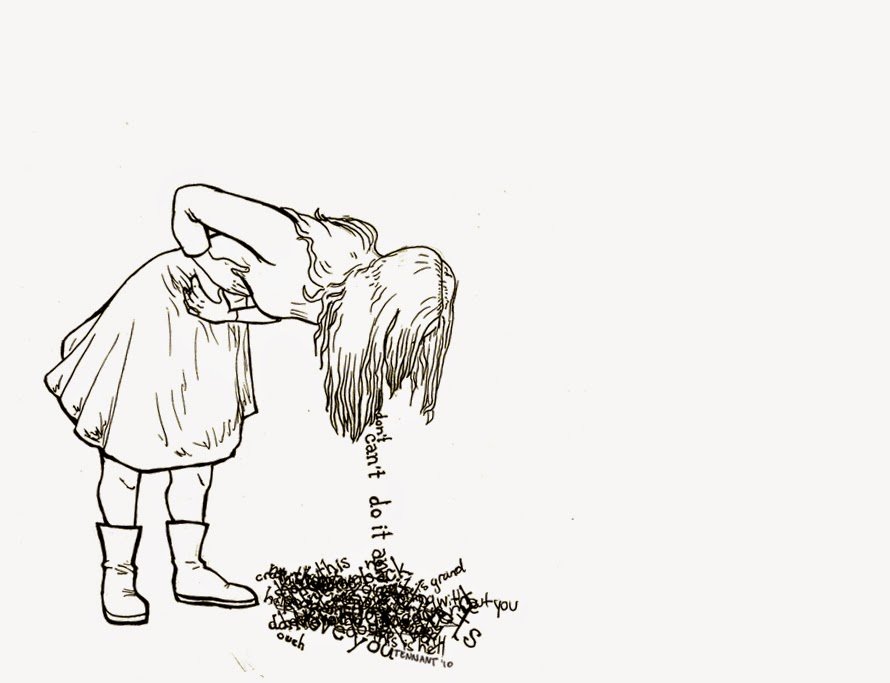Theatre Thoughts: Research Planning
It's that time again! Another outpouring of the nonsense I've been thinking about!
* What do performers do when they have finished performing? What's next for a dancer, a singer or an actor after performing?
Throughout my training and performing career there seems to be a trend that male performers go on to become directors or producers, and female performers become teachers. I have never wanted to be a teacher (I don't have the patience with children!) yet it seems that I'm constantly being asked if I am a teacher, training to become one, or want to teach in the future.
Which leads me on to my next question...
* Why is it that there are so many female dancers and actresses, but comparatively few prolific female choreographers or directors? (note, I say 'comparatively' - I am aware that there are incredible women working in all areas of theatre, but just that the imbalance in production roles is definitely biased towards the guys!)
There are so many diverse roles in the creative and arts industries, and it seems odd to me that, compared with the men, there are relatively few female members of production who rise to prominence or mainstream recognition.
Originally Published at http://bit.ly/1OKBcX9
Vomiting Words... Image Credit: zeeoutlandishone
Theatre
I recently wrote a blog about trends among theatre goers - then a friend on Twitter posted a link, and a fellow course student posted another. These are the links:
The Stage - Originally Posted by Pip Spalton
Government Website - originally posted by a professional colleague on TwitterThese two articles, to me, are linked. On the one hand we have Nicky Morgan, Education Secretary, apparently warning against studying the arts, claiming they do not offer viable career choices*, and on the other hand the government she works for is showing that the arts is worth over £71billion to the UK economy.
The argument Morgan is posing is that there needs to be more students studying STEM subjects (Science, Technology, Engineering and Maths) and that there is a deficit in these areas due to students choosing to take Arts and Humanities in the supposedly mistaken belief that there are more career options available to them with degrees.
"...the idea that choosing arts and humanities subjects can keep pupils' career choices open "couldn't be further from the truth"..." The Stage: quote - Nicky Morgan: Education Secretary
The government article appears initially to be suggesting the opposite: that arts and humanities subjects have huge potential for future careers. Comments appearing regularly are along the lines that tourists do not come to the UK for the pioneering scientific research, they come for the theatres, museums and art galleries.
"...these incredible statistics are confirmation that the Creative Industries consistently punch well above their weight, outperforming all the other main industry sectors and are a powerhouse within the UK economy." Maria Miller: Secretary Of State For Culture, Media And Sport
However, without engineers and mathematicians, the arts industries would struggle! There have to be people involved in any creative enterprise who can build sets and props, work the lighting and sound, balance the books, etc. There are crossovers in most industries and a subject studied in high school may or may not have any bearing on a lifelong career.
Every child has proficiencies in different areas and if children in school are forced to take subjects they don't enjoy, could this dent their belief in their abilities for the rest of their lives, or could it help expand their confidence as they work towards achieving in a new area?
Personally I think that fifteen (the age at which children generally choose their GCSE subjects) is too young to decide. Nicky Morgan states that "These figures show us that too many young people are making choices aged fifteen which will hold them back for the rest of their lives." (The Stage: quote - Nicky Morgan) However who can possibly tell at that age what will help or hinder them in the future? I chose subjects I enjoyed, and by the time A-Levels came around I had an idea of a path I would like to follow. Had I been forced to take exams in things like Maths or Physics, I know I wouldn't have enjoyed it and done badly, which surely would hold me back more than getting good grades in so-called 'Soft Subjects' like Drama.
*apparently the article misrepresents her exact words at the conference in question, however without access to the conference I am merely quoting from the article as published in The Stage.
Creative Industries: Image Source - blogs.susu.org
Throughout my training and performing career there seems to be a trend that male performers go on to become directors or producers, and female performers become teachers. I have never wanted to be a teacher (I don't have the patience with children!) yet it seems that I'm constantly being asked if I am a teacher, training to become one, or want to teach in the future.
Which leads me on to my next question...
Image Source: nicolesiccarelli.com
* Why is it that there are so many female dancers and actresses, but comparatively few prolific female choreographers or directors? (note, I say 'comparatively' - I am aware that there are incredible women working in all areas of theatre, but just that the imbalance in production roles is definitely biased towards the guys!)
There are so many diverse roles in the creative and arts industries, and it seems odd to me that, compared with the men, there are relatively few female members of production who rise to prominence or mainstream recognition.
Originally Published at http://bit.ly/1OKBcX9






Comments
Post a Comment